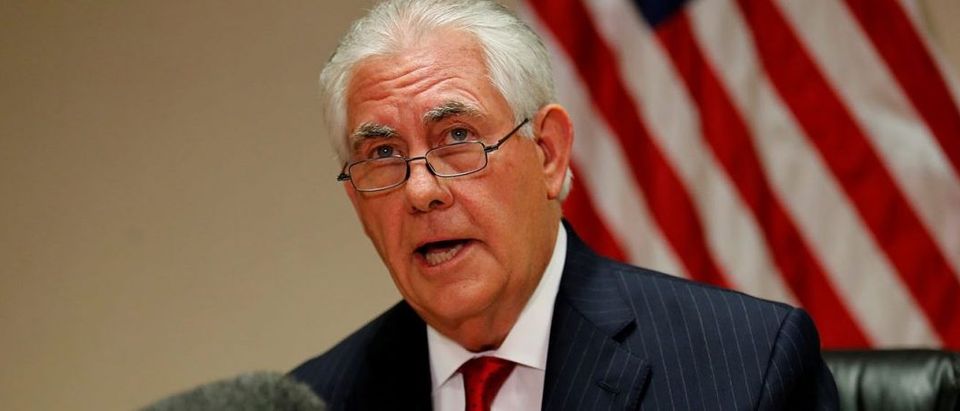Top Trump administration officials can’t get their story straight regarding regime change in Syria.
National Security Adviser H.R. McMaster, Secretary of State Rex Tillerson and ambassador to the U.N. Nikki Haley all made appearances on Sunday news shows in which they gave different perspectives on what comes next for the Assad regime.
Tillerson said in an appearance on ABC that the U.S.’ stance on regime change from before the strike on Syria had not changed. “Any time you go in and have a violent change at the top, it is very difficult to create the conditions for stability longer term,” the secretary of state said.
He added that the strike was mainly a message that Syrian President Bashar al-Assad can’t use chemical weapons without getting a response.
Just last Thursday, Tillerson said that “steps are underway” to create an international coalition with the goal of regime change. Meanwhile, U.N. envoy Nikki Haley said that ousting Assad is a priority for the U.S. government.
“There’s not any sort of option where a political solution is going to happen with Assad at the head of the regime,” Haley said on CNN. “It just — if you look at his actions, if you look at the situation, it’s going to be hard to see a government that’s peaceful and stable with Assad.”
In a U.N. Security Council meeting on Friday, Haley said that the U.S. was “prepared to do more” against the Assad regime. On Thursday, the U.S. fired nearly 60 Tomahawk missiles at a Syrian airfield where planes allegedly took off from to launch a chemical weapons attack.
A few weeks ago, Haley was touting a different line regarding Syria. “You pick and choose your battles and when we’re looking at this, it’s about changing up priorities and our priority is no longer to sit there and focus on getting Assad out,” she told reporters.
McMaster, who has reportedly been gaining power in the Trump White House, said on Fox News that while the U.S. backs regime change, it won’t be the country who is “going to effect that change.”
“What we’re saying is, other countries have to ask themselves some hard questions,” McMaster said. “Russia should ask themselves, ‘What are we doing here?’ Why are we supporting this murderous regime that is committing mass murder of its own population and using the most heinous weapons available?’”
The Assad regime has been backed by both by Iran and Russia, and the Kremlin has not responded kindly to the military strike on their mideast ally. Russia announced the ending of a program designed to prevent American and Russian aircraft collisions over Syria, and its prime minister said the strike put the U.S. and Russia on the brink of war.
President Trump in the past vehemently opposed regime change in Syria. “We should stay the hell out of Syria, the ‘rebels’ are just as bad as the current regime,” Trump tweeted in 2013. In the past week, however, he has described himself as “flexible.”


